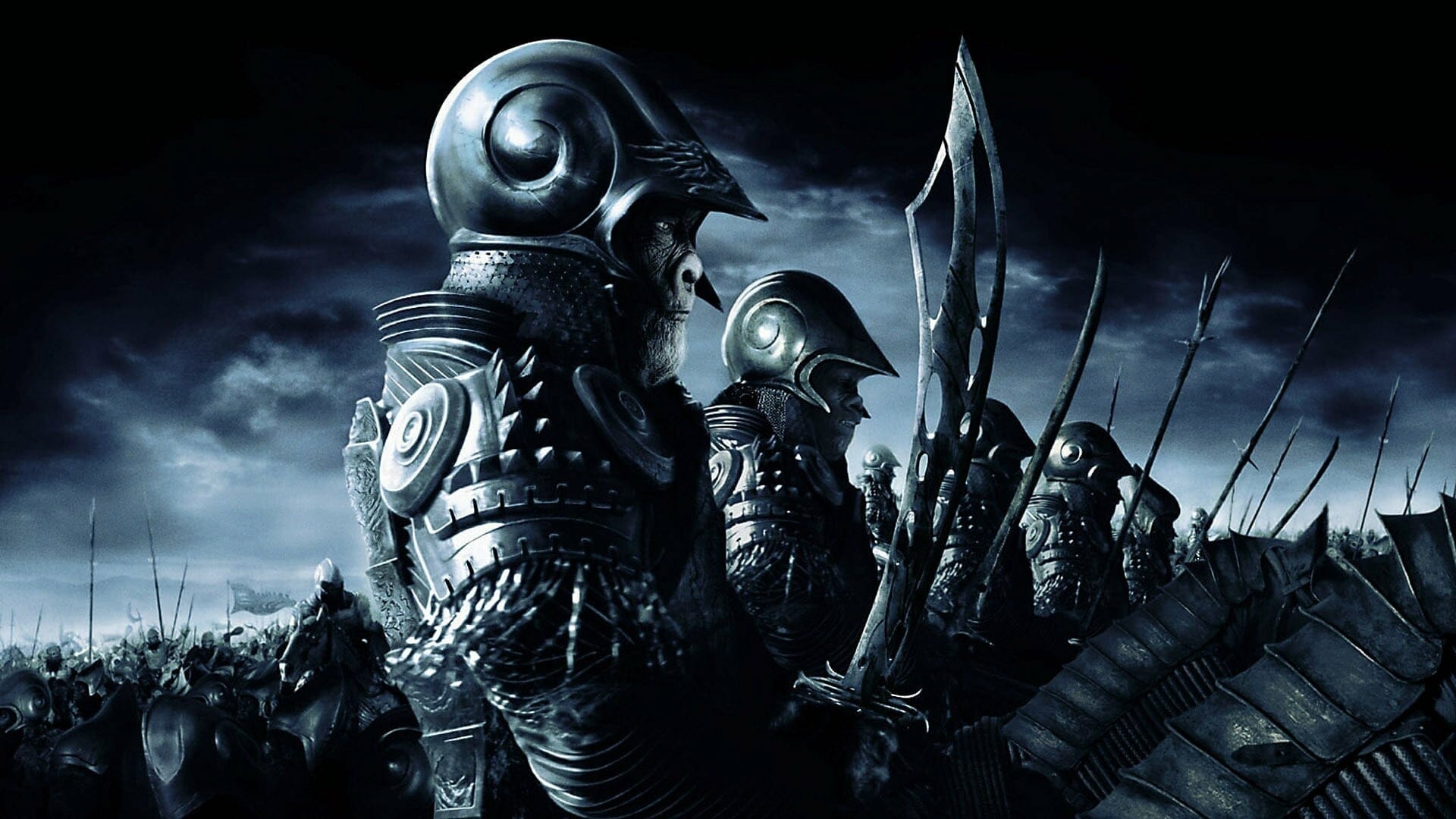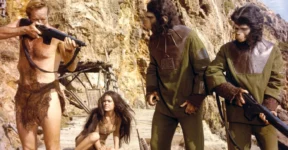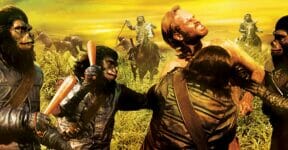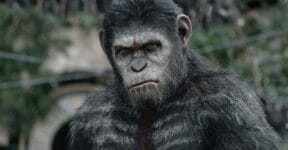There is only one remake of Franklin J. Schaffner’s Planet of the Apes (1968). It carries the same title as the original but is directed by Tim Burton and was released in 2001. While maintaining familiarity with the 1968 classic, Burton brings his own flairs and styles into the film franchise with impressive makeups that look good on a modern screen and a noticeable ending deviation worthy of a sequel or two. After more than three decades, finally some major overhauls of the visuals hit the theaters. Fans understandably set their expectations high. That said, Planet of the Apes 2001 underwhelms the critics and audience alike.
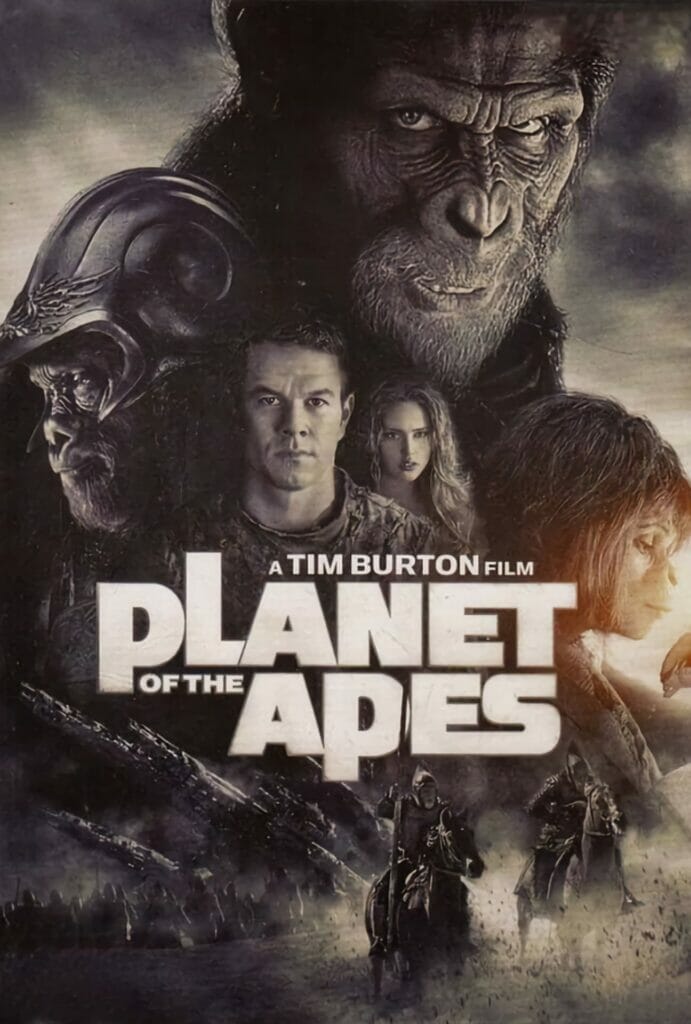
Most think the film is a failed tribute to the original, but a few are still unsure whether the spectacle alone is enough to redeem its lack of seriousness. Mark Wahlberg’s Leo Davidson takes the sweet spot as the main protagonist and is admittedly a bland alternative to Charlton Heston’s George Taylor. Again, he crash-lands onto a planet dominated by advanced ape civilizations in which humans are imprisoned and enslaved. The premise is identical in both movies that the world has had a reversal of evolution.
A Major Deviation
In the original version, the ending scenes reveal that George Taylor never goes far in his spaceship when he believes he has landed on an extraterrestrial planet. The world dominated by apes is really a post-apocalyptic Earth following the collapse of human civilization due to a nuclear disaster. In one of the most iconic sci-fi scenes in history, Taylor bumps into the Statue of Liberty, ruined and strewn on a beach.
Leo Davidson is depicted as taking an interstellar journey from the ape-dominated planet, wherever it is, back to Earth. He lands on the National Mall right in front of what is supposed to be the Lincoln Memorial. Instead of finding the statue of Abraham Lincoln, he sees a figure of Thade, a military leader from the ape-world.
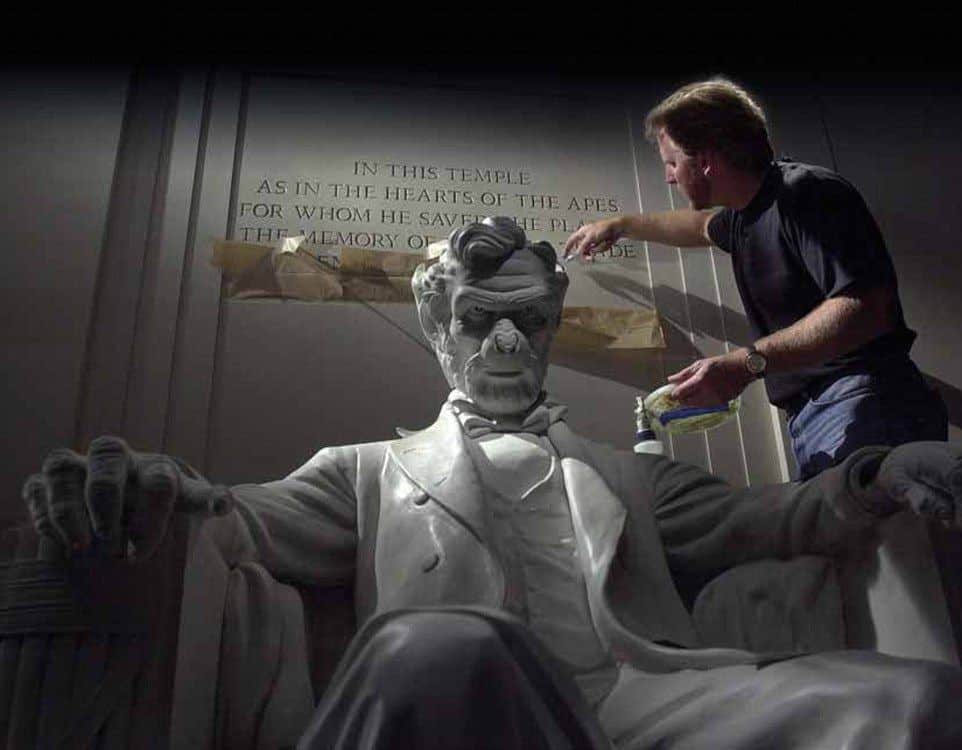
The vast majority of fans and audience are not as appreciative of the epilogue as they are with the 1968 version. It is not just a cliffhanger, but a headache-inducing scene impossible to explain even after a session of careful rewatching. Surprise endings are nothing new in the film industry. Some people prefer a puzzling end to a story as it opens the possibility for a variety of both logical and farfetched interpretations.
However, things are a little bit different with Planet of the Apes thanks to its popularity. By the time the remake comes out, POTA is already a successful media franchise with four sequels and two TV series. Fans know how the story should go and where the plot twists are. Sending Leo back to Earth proves to be too much of a deviation for viewers to approve of.
Another unfortunate departure is how the remake fails to engage the politics of civil rights in any meaningful way. One of the major social issues easily observable from every Planet of the Apes film is the subtext of inhumanity towards marginalized people, especially the African Americans. No, it is not the 1960s – 1970s anymore, but that doesn’t mean the issue is no longer relevant in the 21st century United States. The threat of nuclear disaster is also largely missing and the post-apocalyptic dessert landscape is replaced by lush green environment.
On Its Own Merits
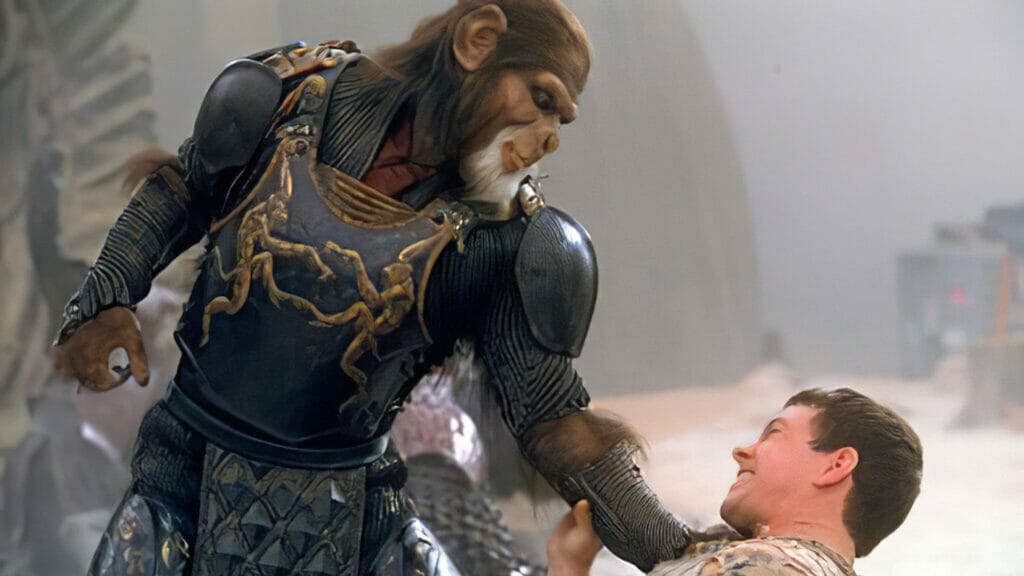
The general consensus is that Burton’s Planet of the Apes 2001 remake has striking visuals and powerful B-movie charms, but it just doesn’t compare to the original in terms of time-relevant political playfulness. Be that as it may, the film is not entirely apolitical. It has at least two powerful scenes that poke at the social issues of the day:
· Gorilla Colonel Attar, portrayed by Michael Clarke Duncan, wears his menacing uniform and growls with all his might at Leo lying vulnerable on the ground, “Take your stinking hands off me, you damn, dirty human.” At the time of the remake, Duncan is still fresh from his award-winning role as John Coffey, the mentally underdeveloped victim of a wrongful death sentence. While it is probably a racial humor on the surface, deep down Burton demonstrates a brilliant artifice by enabling a black actor to lay claim on a Heston signature line from the original film.
· One of the most memorable and entertaining scenes actually involves Charlton Heston himself, in a cameo appearance as Zaius, the father of General Thade. In his death bed, Zaius gives his son a warning about the destructive nature of humans, while pointing to an automatic handgun. The scene might appear like a cliché for the unaware, but it is subversively political considering Heston’s real-life day job as the president of the National Rifle Association. Burton makes a perfect strike by using a proponent of permissive firearms regulation to send a message about gun control.
Bear in mind that the film also looks impressive. In terms of visuals, the remake is a giant leap from the original. The apes make a prominent presence with personality and facial expressions. Every set triggers the right sense of alien bewilderment, and it sets off a possible interspecies love story too.
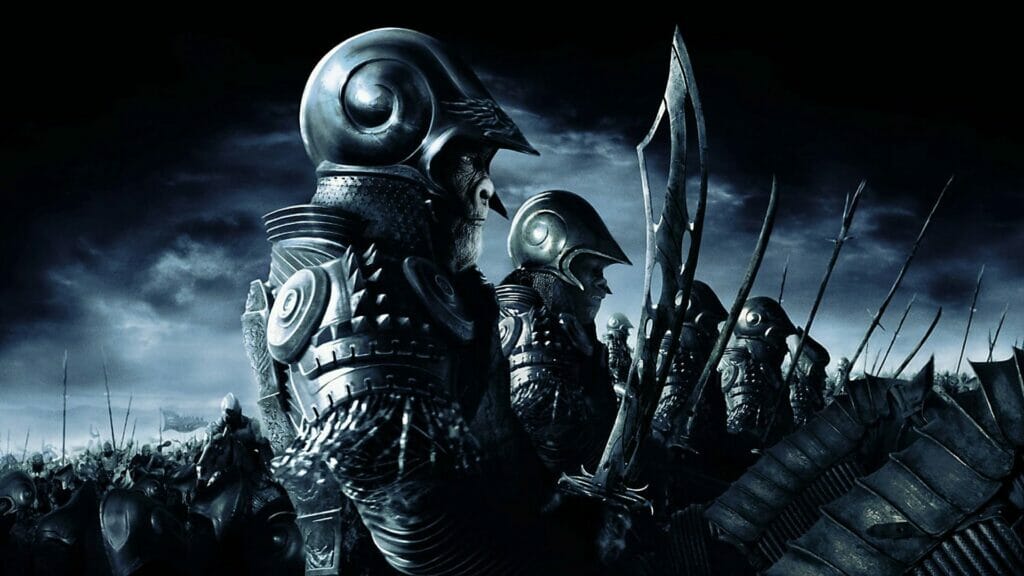
The popularity and familiarity of the original Apes movie becomes an extraordinary burden for the remake; a reimagining or reinvention might be a more appropriate term. Any attempt to replace the classic is futile, and so the 2001 version sidesteps the original by offering some new perspectives. The ending is a prime example of such an approach. As ambiguous as the remake’s epilogue is, the scene actually is more faithful to the source material than the 1968 version. In the Planet of the Apes novel by Pierre Boulle, the astronaut does make a return to Earth and is greeted by a gorilla in a jeep. Any other movie that is faithful to its source material is usually much appreciated, but Burton’s remake is an anomaly – one that does not have such a luxury.
We liked the 2001 Planet of the Apes, but when it came out it seemed a little silly to bring forth the same story of a classic idea all over again despite the new twists, or should we say the faithfulness to the original story. What really bothered us was why the new sequels were never made, but when it comes to Hollywood, we all know it’s not about the quality of the show, only the quantity of the dollar signs.
Did you enjoy the 2001 Planet of the Apes movie? Would you like to see a sequel to it that’s completely different from the Hollywood version of sequels in the original series? Let us know. We’d love to hear from you.
Other things you might want to know about.
What does Tim Burton have to do with Planet of the Apes?
According to filmstories.co.uk there was a lot of controversy about the ending of Tim Burton’s Planet of the Apes in 2001. Burton described the movie as a ‘reimagining’ of the 1968 sci-fi classic. Tim Roth, Paul Giamatti, and Helena Bonham-Carter added great theatrical impacts to the film. Some have said the new ending weighed the film down. It was supposed to be a cliff hanger in which many of the cast would come back for a sequel, but this never happened.
For more details about Tim Burton’s Planet of the Apes go to filmstories.co.uk and read the article posted by Robb Sheppard called ‘Tim Burton’s Planet of the Apes, and its controversial ending.’ It will show how fans of a movie make a difference.
Mark Walberg’s thoughts of his Planet of the Apes movie
According to cinemablend.com Walberg said the 2001 reboot of the POTA movie wasn’t very good. He said, “It was an amazing experience working with Tim. I think we kind of set the franchise back a little bit.”
Twentieth Century Fox had plans to do more sequels (from the 2001 movie) but they opted not to pursue this.
In 2011 they did a prequel (Rise of the Planet of the Apes) and that was successful. Fox did two sequels from this that were very well liked.
Go to cinemablend.com and read Matt Wood’s article called ‘Mark Walberg’s Blunt Opinion of his Planet of the Apes Movie.’ It will have the explanation of the alternate ending of the 2001 movie.
Tim Roth and Planet of the Apes reboot of 2001
According to cinemablend.com Tim Roth, who starred as the film’s villain, tries to explain the confusing ending. It is widely thought that the franchise reboot of this movie was a catastrophic failure, even though it was a box office success.
Roth, who played General Thade, has tried to explain what happened when his character went back in time to Earth at the end of Tim Burton’s film. Roth said, “I think it was he took over, he took control. I think the idea was when they shunted in time that way, he was the president of the Planet of the Apes. Brilliant, I thought. it’s crazy stuff. I liked it. I had a good time making it. It was the old style. It wasn’t too much CG trickery.”
Go to cinemablend.com to read the article by Gregory Wakeman called ‘What Really Happened at the End of Planet of the Apes? Tim Roth Finally Explains.’ There will be more explanation about Tim Burton and the alternate ending of POTA.

